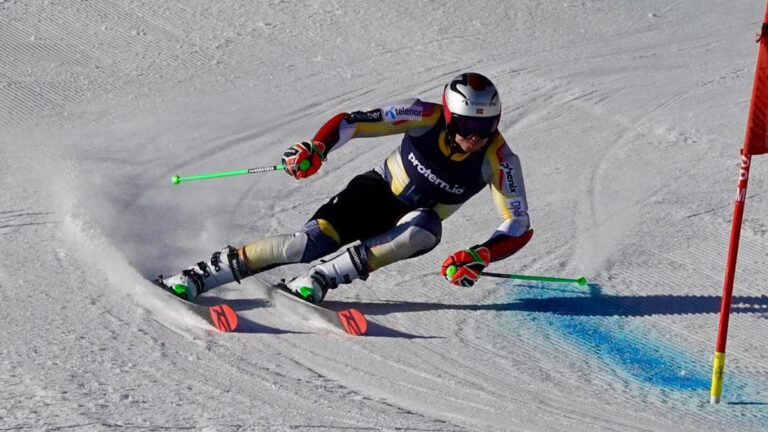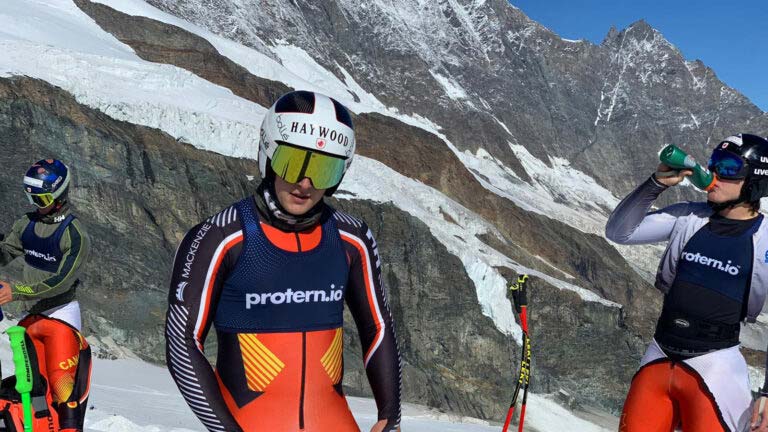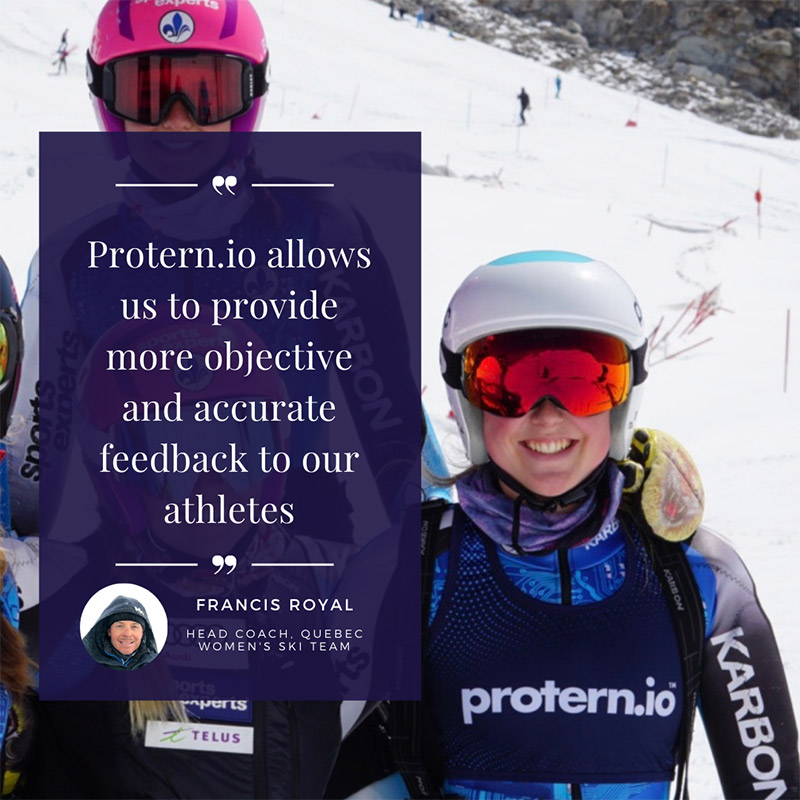Leveraging GPS Technology in Alpine Skiing
Two day clinic collecting and analyzing high-accuracy GPS data to help your athletes improve faster.
GPS Technology in Alpine Skiing Clinic
Get more out of your training camp by collecting high-speed GPS data
Protern.io’s experts will show you how the world’s top athletes and coaches are leveraging this technology to train smarter and improve faster.
With minimal ‘classroom’ time, useful insights derived from your athletes’ data, and practical tips to save you time on the hill, this clinic is designed with coaches in mind.
The clinic includes access to up to 5 Protern.io Sensors so that you can collect detailed alpine ski data from up to 5 of your athletes over 2 days of your training camp.
High-accuracy, high-speed GPS sensors can collect over 5,000 data points per run, compared to 2 from a typical optical timing system.
This detailed data, paired with timing accurate to 0.05s and speed to 0.5km/h, GPS technology is changing alpine ski training.
Register to collect data from your athletes and see how you can save time and help your athletes improve faster.
Free Clinic


Learn how-to
Use speed data to evaluate different tactical approaches
Get accurate times without setting up a timing system
Tailor insights to individual athletes for faster improvement
Increase training session efficiency
Pinpoint where time was lost with unlimited splits
Get more out of video analysis by embedding speed data
Program Details
The clinic includes everything you need to collect data from your athletes during your training camp.
Time Required
- Inside time: 1.5 hours over 3 days
- On-hill time: Zero or more depending on your objectives
What’s Included
- Opportunity to collect detailed alpine ski data data from your athletes
- Protern.io Sensors and Gilets for up to 5 athletes
- Protern.io Accounts for 1 coach and 5 athletes for 2 weeks
- Hands-on training by Protern.io staff over several sessions
Sample Schedule
After registering for the clinic, a Protern.io Staff person will contact to you to establish a schedule that works for you.
Outlined below is a sample schedule.
Day before your team will be training
- Protern.io staff will deliver the sensors and gilets and provide a brief orientation on using the tool
Ski training – Day 1
- During the day:
- Up to 5 of your athletes train wearing the Protern.io Sensors
- Afternoon after training:
- Protern.io Staff meet with you to upload and analyze the day’s data
- Discuss objectives for second day’s training and data collection (e.g. on-hill data analysis; video integration; targeted athlete data collection and analysis)
Ski training – Day 2
- During the day:
- Up to 5 of your athletes train a second day wearing the Protern.io Sensors
- Afternoon after training:
- Protern.io Staff will be available to help with video integration and/or more detailed analysis
- Return sensors and gilets
Up to 2 weeks after the clinic
- Access to your data and insights for further analysis and sharing when you are back home
Protern.io Screenshots
Register for the GPS Technology in Alpine Skiing Clinic
Register early as there are a limited number of sensors available.
Frequently Asked Questions
There is no cost to participate in the GPS in Alpine Skiing Clinic.
At minimum expect to allocate about 1.5 hours off the hill to work with the Protern.io team.
Our staff will meet with you the day before for about 45 minutes to show you the tool and get you set up. Following your first training session, we will meet with you again to show you how to get insights from your athlete’s runs.
Extra time, or on-hill time, will be up to you. We will be more than happy to help if you are looking at more advanced run analysis, video integration or live timing and on-hill insights.
There is minimal interactions required from the athletes.
The athletes will need to do wear a gilet (similar to racing bib) and the 35 gram Protern.io Sensor.
The sensor will need to be turned on at the beginning of the training session and turned off at the end.
If you decide to do live timing and insights, the athlete will need sync their sensor after each run. This takes about 45 seconds for 30 minutes of data (typical amount of time per run including time on the lift).
If the slopes are closed, depending on sensor availability, we can extend the clinic additional days.
Protern.io works great for individual athletes. For this clinic however we are looking to work with teams.
We suggest talking with your coach and teammates and getting them to participate. This will help you as you can see how your runs match up with theirs.
No. The purpose of this workshop is to learn about how GPS based technology can be applied in alpine skiing using data from athletes you know.
Of course. When you register and let us know what you would like to focus on.
Being able to see exactly where on a course time was lost applies to every discipline of alpine skiing.
Speed data is just as applicable to slalom, GS as it is to superG and downhill. Alpine skiing is sport built entirely around conservation of speed. The goal is to reduce the loss of speed, be it a fast slalom turn or a wide arc in a downhill.
With GPS data, you can identify exactly where athletes are losing their speed and time.
Protern.io is used world wide by athletes from Crystal Globe winners to 14 year-olds.
There are a number of ways developing alpine skiing athletes benefit from this type of technology:
- Confidence: The athlete doesn’t have to complete a run to still get good insights. Maybe they are too cautious on the steeps, but the coach can show them they are consistently fastest on the flats.
- Empowerment: Coaches know where their athlete’s weakness are, but the athlete has to truly understand this in order to improve. Being able to immediately see the impact of tactical and technical choices of speed and time, empowers the athlete in their journey to improve.




